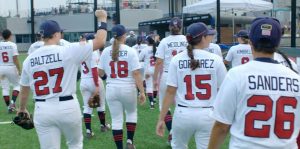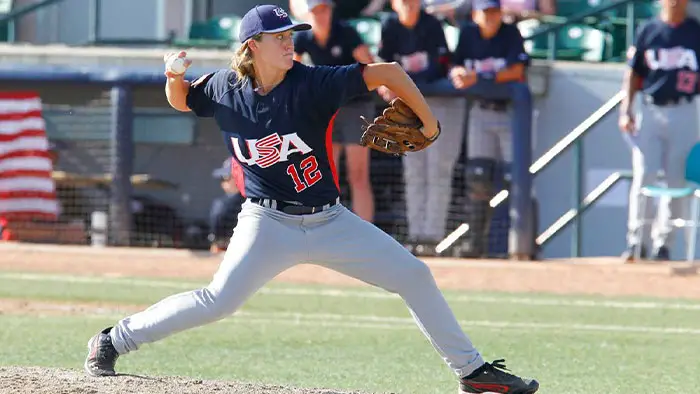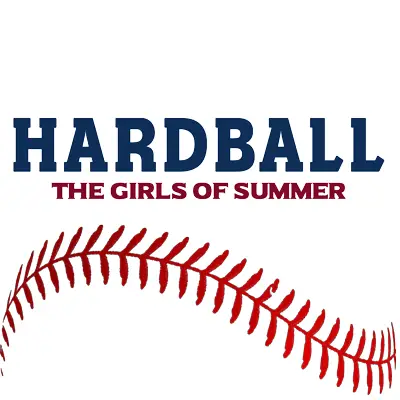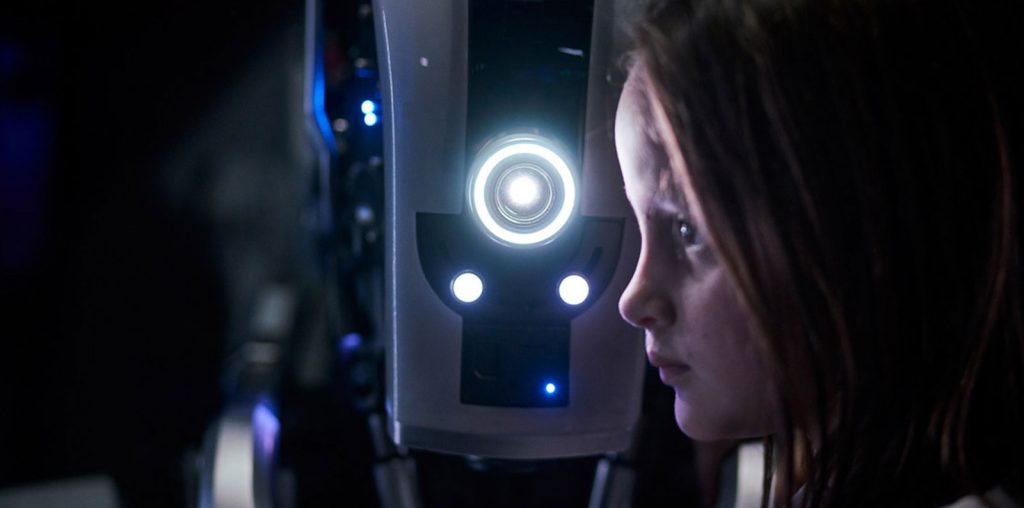
Hardball also follows the 2016 Women’s Baseball World Cup in South Korea. This bi-annual event brings together the best players from around the world—all playing for the prestigious cup and bragging rights. Over the last decade, Japan has dominated the sport with the U.S. just a step behind. Not surprising that this event has inspired most of these countries to invest in encouraging girls to play baseball and developing talent to the professional level. This inspiration continues to spread throughout the world…except in the United States. It begs the question, how can the U.S. win if players can’t properly train year-round, instead of once every two years.
Hardball also documents the struggles of U.S. players and the refusal of our current system to ever consider the idea of women playing baseball. Occasionally, we’ll hear a story of a girl who lights up her little league team, or a talented woman competing for a spot on a minor league as with the Sonoma Stompers. But the story is not about a single woman’s journey to break into the majors, the end game is for all women to play baseball…period. They’re not looking to “invade” baseball, but given a chance to play in “a league of their own” akin to women’s soccer and basketball.

“…the struggles of U.S. players and the refusal of our current system to ever consider the idea of women playing baseball…”
Temple’s Hardball: The Girls of Summer exists simply to tell you that women’s baseball is a viable sport for the masses, but hidden to most Americans, especially baseball fans, like me. There is also a large contingent of women who want to play the game and even more talented to play the game at a highly competitive and professional level. Yet, inexplicably we don’t care and somewhat fearful of it. Director Temple was not at a loss to find some pretty sexist footage of good-ol’-boy sports commentators and internet vloggers explaining how women are physically incapable of playing the game. But even on a basic level, it’s the parents, schools, and leagues that just don’t care enough to make it happen.
I love this documentary and found it informative and inspiriting. In the immortal words of The Bad News Bears Go To Japan, “Let them play!” I do have to call out that the documentary lacks the crisp, clean, and professional production values that we expect in our sports documentaries. But then I hope you can see the irony in that statement. I’m certain the goal of the makers of Hardball and the organizers of women’s baseball is to let you know the women want to play baseball and there’s potential for great things. Mission accomplished…if only we gave a damn.

"…"...a large contingent of women who want to play the game...""


The movie made me angry and disappointed. As a film, the message was disjointed – it certainly seemed to promote a women’s baseball league, but didn’t make a strong case for it. It women are already good enough to play professionally (clearly they are), then why not just focus on the co-ed teams that already exist and make them more accepting of women? We got rid of the “Negro Leagues” because we decided it was wrong to segregate Black and White players; we complain that softball was promoted to distract women who want to play baseball by creating a separate league; why create more segregation instead of focusing on integration? If more female ball players had equal opportunities and encouragement at younger ages, we wouldn’t need a separate league for women. It is as if we’ve just given up on changing men by insisting on equality (as noted, there were plenty of examples of sexism in the film).
The film quotes Dr. Justine Seigel, who says, “if we tell girls that they can’t play baseball, what else will we tell them that they can’t do?” I think a follow up statement would be, “if we tell girls that they can’t play with boys (and vice versa), what else will they think they can’t do together? Doesn’t having girls of all capabilities on a co-ed team (with boys who also have relative strengths) promote future adults who know to respect co-workers, neighbors, and colleagues of all genders? I have had coaches who have asked me why I don’t play with the girls (softball), but never another player. I think that girls who play baseball do more than change sports for women, they change the way that the boys who play with them think about girls.
I was also appalled to learn through this film that the professional women’s baseball players only play seven innings, that they have a different bat, and that their field is smaller. I am a girl who has played baseball on co-ed teams all my life. I don’t want to play a “dumbed down” sport. When my mother and grandmother set records for the marathons that they ran, they didn’t run shorter distances than the men. The fewer innings just doesn’t make sense – plenty of scientific evidence suggests that women have MORE endurance than men, not less.
The audience at the theater was very enthusiastic about the film’s message. As a young player, I was both impressed with the women athletes who were profiled and deeply disappointed by the sexism that the audience celebrated. I support having more women in this sport, but feel very disappointed that so many who should have the same goal are in fact working hard toward options that would give me different (and in my opinion less) access to the game I love. In my history classes, we learned that “separate but equal” was, in fact, anything but equal.
It is not a professional baseball league. Buy the movie in iTunes to get the skinny on Girls and Women’s Baseball!
It is NOT true that womens professional baseball leagues exist in dozens of countries. The only professional league is in Japan started in 2006. About 15 countries have National women’s baseball teams, but these aren’t professional leagues. Australia is developing a womens league, Venezuela announced one in 2016, but then their country imploded. Facts matter.